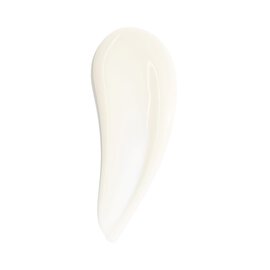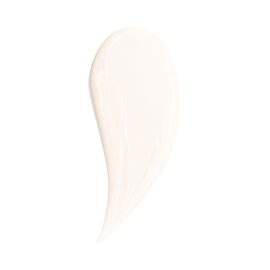- 01 WHAT ARE THE SYMPTOMS OF DRY SKIN DURING PREGNANCY?
- 02 WHY IS THE BODY PRONE TO DRY SKIN, ESPECIALLY DURING PREGNANCY?
- 03 WHICH AREAS OF THE BODY TEND TO BECOME DRY DURING PREGNANCY?
- 04 WHAT CAN I DO ABOUT DRY SKIN DURING PREGNANCY?
- 05 HOW CAN PREGNANT WOMEN PREVENT DRY SKIN?
- 06 CAN PREGNANT WOMEN PREVENT DRY SKIN THROUGH A BALANCED DIET?
- 07 CONCLUSION: DRY SKIN DURING PREGNANCY CAN BE PREVENTED
WHAT ARE THE SYMPTOMS OF DRY SKIN DURING PREGNANCY?
During pregnancy, many women notice that not only their body changes, but also their skin. One of the most common complaints here is extremely dry skin during pregnancy. But not all dry skin is the same. Rather, there are various forms in which it can occur. The most common accompanying symptoms of dry skin during pregnancy include:
- Cracked skin
- Scaly skin
- A particularly dry belly
- Intense itching
- Increased development of eczema
- More skin blemishes
- Sensitive or hypersensitive skin
- Skin irritations
WHY IS THE BODY PRONE TO DRY SKIN, ESPECIALLY DURING PREGNANCY?
Dry skin can have numerous triggers. However, especially during pregnancy, many women complain of very severe dry, tense and even itchy skin. Here we have compiled a list of the causes of very dry skin during pregnancy:
1. WATER RETENTION DEPRIVES THE SKIN OF MOISTURE
During pregnancy, your body stores significantly more water than usual. As a result, the moisture does not reach the lower layers of the skin, so you may suffer from increased skin dryness.
2. YOUR HORMONES ARE GOING CRAZY
Besides water retention, your hormonal balance is mainly responsible for the lack of moisture in your skin. Here, the increasing corpus luteum hormone progesterone and estrogen in particular play an important role. What results in a radiant complexion for some women, shows up as drying skin for others. This is because while estrogen promotes cell renewal and the formation of collagen, it also limits the functions of the sebaceous glands.
3. THE SENSITIVITY OF YOUR SKIN INCREASES
Dry skin during pregnancy is also aggravated by a third factor, even if only indirectly. Your skin may not only be taut and itchy, but it often becomes much more sensitive during pregnancy. Maybe you have already noticed it yourself, but clothes, jewelry or make-up can cause sudden skin irritations, even if you didn't have problems before. The same can happen with shower gels or detergents. Skin irritation can be another cause of your skin drying out faster.
WHICH AREAS OF THE BODY TEND TO DRY OUT DURING PREGNANCY?
Dry skin is unpleasant and annoying on almost every part of the body. Unfortunately, this is no different during pregnancy. However, some parts of the body are affected more often than others:
STOMACH AND CHEST
One of the most common complaints is a dry belly during pregnancy, closely followed by dry skin around the breasts and chest. This is because these two areas of the body have to go through exceptionally large growth spurts, for which the skin is not adjusted. The stretching of the skin and connective tissue causes the skin to dry out, becoming tight and itchy. It also promotes stretch marks.
FACE
Dry skin on the face is another frequently mentioned side effect during pregnancy. The lack of moisture prevents your skin from replenishing its own oils, causing it to lose elasticity and become rough and sensitive.
THIGHS AND ARMS
In addition to the "classic" areas such as the stomach, breasts or face, arms and legs are also frequently affected by severe dryness. Since women gain a comparatively large amount of weight in a relatively short period of time during pregnancy, the skin hardly has time to get used to the new volume. So, if you naturally tend to store fat more on your thighs or arms, this can result in tight, dry skin.
ARMPITS
You may notice yet another dry spot on your arms. A fairly common, though rather unknown, side effect during pregnancy can be dry skin in the armpits. There are two reasons for this: one, many women report increased sweating before giving birth. This sweating can irritate the skin of your armpits. Another cause can be the general hypersensitivity of your skin, which often comes with being pregnant. So, it is quite possible that you are suddenly more sensitive to deodorants, creams, or soaps than before.
HANDS AND FEET
As you may already have experienced from the dry, cold season, parts of the body that are particularly exposed or uncovered react sensitively to external stimuli and influences. It is no different during pregnancy. Here, the increased lack of moisture means that your hands can become chapped, red, and sensitive more quickly. The same applies to the feet.
HEAD
Not only your body parts, but also your scalp can be sensitive during pregnancy because it dries out just like the rest of your skin. The only problem is that you can't apply cream to your scalp as you would to your hands or face. Therefore, scaly skin on the head may increase during pregnancy.
WHAT CAN I DO ABOUT DRY SKIN DURING PREGNANCY?
It is very important to give yourself and your skin time off and the right care during pregnancy. Due to the strong hormonal fluctuations and increased water retention, your skin is glad to receive an extra helping of attention.
YOUR SKIN CAN FEEL GREAT WITH THE RIGHT BODY CARE
If you suffer from dry skin on your belly, arms or legs, a rich body lotion can provide you with pleasant relief. While it's usually enough to apply cream once a day, feel free to treat yourself to an extra application during pregnancy. To compensate for severe dryness, the best choice is a high-quality cream such as the intensely nourishing Beurre Corporel from Biotherm, which pampers dry to very dry skin with intensive moisture and soothes irritations thanks to shea butter.

While you are expecting your baby, you should pay even more attention than usual to high-quality, qualitative ingredients. Therefore, products that are specially developed for dry skin and promote the natural elasticity of your skin are particularly suitable. Biotherm's Anti-Drying Lait Corporel not only supports skin regeneration, but also strengthens its natural protective barrier, so that sensitive skin, in particular, is well protected.
BODY OILS FOR THAT EXTRA DOSE OF CARE
Special body oils not only care for your skin, but also pamper it with a real feel-good factor. High-quality oils such as avocado, almond, or coconut oil are especially recommended during pregnancy, as they are all very moisturizing. The Life Plankton™ Body Oil by Biotherm is characterized by a combination of precious almond and olive oil, which deeply regenerates particularly dry and rough skin. Above all, the ingredients also work effectively against stretch marks, because the body oil promotes the elasticity of your skin.

If you are looking for a body oil that makes your skin beautifully supple and at the same time absorbs quickly, the Biotherm Oil Therapy Baume Corps is a good choice. The body cream contains valuable musk rose oil, passion flower oil, as well as apricot oil. This combination can restore your skin's natural regenerative powers and effectively strengthen it.
IS IT POSSIBLE TO APPLY TOO MUCH CREAM?
In fact, during pregnancy you can treat yourself to a little more care than usual. For example, if you usually apply lotion either in the morning or in the evening after showering, you can now use body lotion twice a day with a clear conscience. If you are still suffering from particularly tense, dry skin, you can still seek relief a little more often.
HOW CAN PREGNANT WOMEN PREVENT DRY SKIN?
In addition to the right skin care, here are some tips to help you prevent dry skin:
- Shower instead of bath: Extensive bubble baths dry out the skin even more, plus bath additives can further irritate your skin.
- Pat dry instead of rubbing off:
To protect your skin after showering, it is better to lightly pat it dry instead of briskly rubbing it off as usual. - Products for sensitive skin:
If possible, use mild creams, soaps, or other cleansing products without many fragrances. - Moisturizing creams:
Your skin needs extra attention during pregnancy. Therefore, use creams or body oils for dry and stressed skin and apply them several times a day or as needed. - Loose, breathable clothing:
Since your skin is sensitive and irritable anyway, you can get relief with loose-fitting clothing made of natural fibers such as cotton. - Shade instead of sunbathing:
High levels of sunlight are always harmful to the skin. During pregnancy, however, your skin becomes irritated particularly quickly. Therefore, avoid sunbathing and always wear creams with sun protection factor, even in winter.
CAN PREGNANT WOMEN PREVENT DRY SKIN THROUGH A BALANCED DIET?
A common question with dry skin during pregnancy is whether a healthy and balanced diet can help. This is possible to a certain extent, after all, internal factors such as nutrition always play an important role in your health. Certain foods can support the moisture balance and the natural regeneration of your skin. These include, for example:
- Avocados
- Nuts and seeds
- Spinach
- Carrots
- Salmon
Furthermore, an adequate fluid intake is particularly important. Replenish your hydration levels by drinking plenty of water or unsweetened tea on a regular basis.
CONCLUSION: DRY SKIN DURING PREGNANCY CAN BE PREVENTED
If you also suffer from severely dry skin, you are not alone with your symptoms. In fact, it is one of the most common symptoms during pregnancy. However, with extra care, sufficient rest, and moments of well-being for yourself, you can effectively soothe your sensitive skin and get the dryness well under control, so you can enjoy the beautiful time during your pregnancy relaxed!










